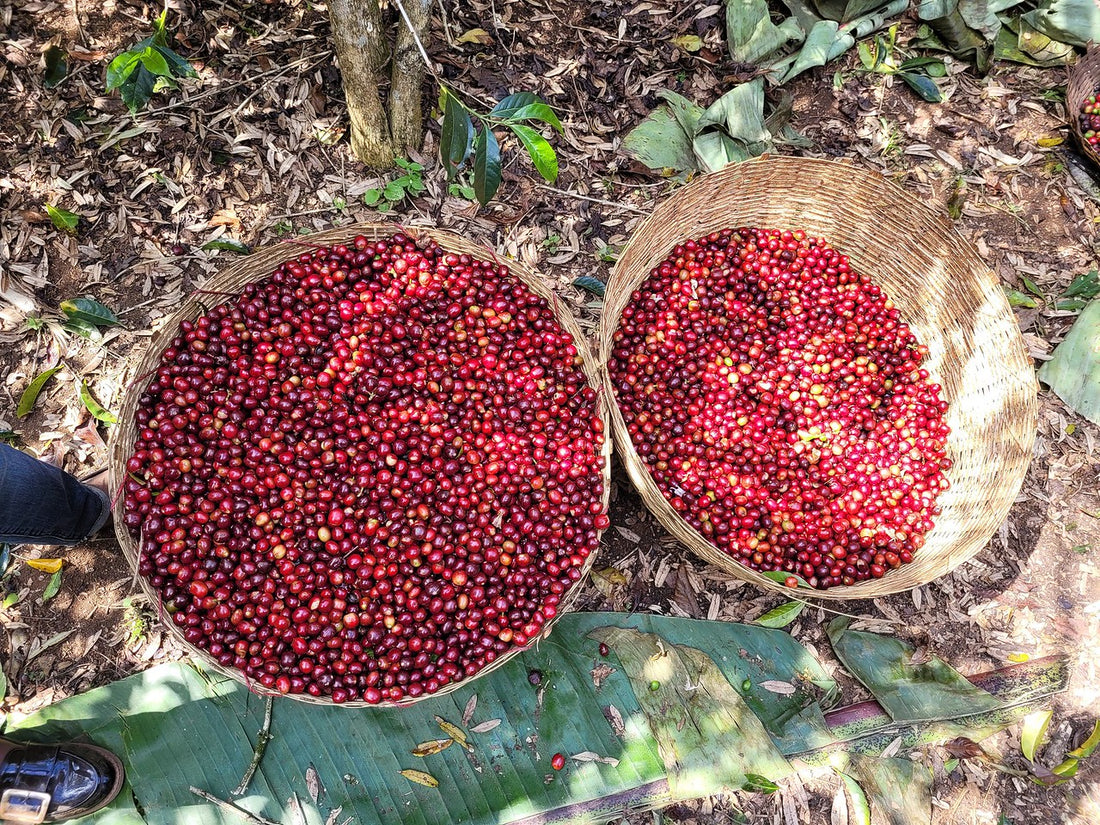Established in 1967, the "Cooperativa de Caficultores de Anserma" emerged from a shared desire of coffee growers to pool their collective strength and knowledge. This unity was not merely symbolic, but practical, aiming to garner greater value for each associate's coffee crop.
The Coop's crops thrive in altitudes ranging from 1,790 to 2,200 meters. The varieties produced include Castillo, Colombia, and Caturra, with a primary focus on the natural process, although a small amount is fully washed.
Each cherry undergoes a classification process to determine it's use in either natural or fully washed processing, based on its quality. Post-selection, the cherries undergo a cleaning phase, eliminating any unwanted solid particles and washing the cherries.
The cleaned cherries then pass through an optical selection machine. This separates the ripe cherries from the greener ones, the latter being directed towards the washed process coffee, with the best ones assigned to the natural process. The selected cherries are moved to baskets, marking the start of an aerobic process lasting 24-36 hours.
These baskets find their place in a temperature-controlled room. This is an aerobic process in an open basket, allowing the free circulation of oxygen and CO2, which is produced during fermentation. The coffee is then relocated to a mechanical drying system, maintaining a temperature between 35 and 40 degrees Celsius until reaching a moisture level of 10-11%.
Post drying, the coffee is packed in GrainPro bags to stabilise it for 15 days, with each processed batch kept separate to ensure careful management of this phase. The journey ends with the coffee moving to the dry milling plant, ready for the next stage in its story.
Coffee/Farm: Chapata
Cup Score: 86
Altitude: 1790-2200
Process: Natural
Location: Anserma, Caldas
Varietal: Castillo, Colombia & Caturra
Notes: Strawberry Jam Sweetness, Dark Chocolate Decadence & Creamy Richness. We call this Pablo Chucksobar.

